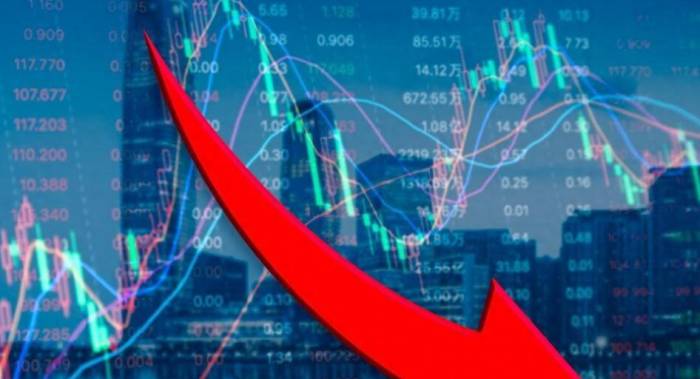3 Major Bears Push Stock Market Below 2800 Points?
In recent days, some have claimed that the Chinese stock market is doomed because it has fallen below the 2800-point mark, causing panic among many. Hu Xijin, on the other hand, has added 160,000 yuan to his portfolio at a lower point, bringing his total investment in the stock market to 600,000 yuan. Why is he optimistic about the stock market?
In fact, many people have misunderstood. Reaching 4000 points in 2024 is not a dream.
Recently, the stock market has broken through the 2800-point threshold. A few days ago, some were saying that 2800 points was the bottom line, but now it seems there is no bottom line at all. The stock market is not as simple as many people imagine, or to put it bluntly, relying on the official sector to save the stock market is neither necessary nor realistic.
This is because the underlying logic of China's stock market today is actually very similar to that of real estate, and it's not a question of whether to save the market or not.
In other words, real estate does not need to be saved, and neither does the stock market. This is because the situation they face and their internal logic both stem from three very important factors.
First, the foundation of both the stock market and the real estate market lies in China's economy.
In any country in the world, the stock market and the real estate market are not simply speculative markets, but rather barometers of the economy, directly reflecting economic conditions and confidence.
Advertisement
When we think deeper, the asset prices of any country are determined by the economic foundation. If the economy is poor or even hollow, assets lose their value support and become castles in the air, with prices inevitably falling sharply.
Historically, the economies of Japan, Brazil, Argentina, and other countries have also experienced crazy growth, even reaching the threshold of developed countries. However, once the economic foundation is lost, asset prices will not only fall but may continue to decline for many years.
Of course, we are not saying that China's economy is failing, but rather that after the pandemic, the speed and achievements of economic recovery have not met expectations.At the beginning of 2023, just after the pandemic had subsided, expectations were too high. Many people were determined to make up for the time lost over the past three years, and many domestic and international institutions predicted GDP growth rates above 6%.
Or rather, a 5.2% GDP growth in 2023 was already good, but it did not exceed expectations as usual; on the contrary, it fell short.
Additionally, the overly cold real estate market objectively had a negative impact on confidence and expectations.
Secondly, the turbulent international political and economic environment led to a lack of confidence among both domestic and international investors.
Since 2020, the global outbreak of the pandemic was followed by several years of economic downturn, with a large number of negative factors accumulating by 2023. The global situation became increasingly unstable, with geopolitical frictions, localized wars, US dollar interest rate hikes, energy crises, inflation, and so on.
These issues led to a general lack of confidence in the economy among global investors, with many even believing that some major economies would face recession in 2024, such as the United States.
In this atmosphere, many investors implemented strategic contractions and even hoarded cash in preparation for a crisis. Many global capital markets lost very important economic and confidence support, and China's stock market could not be an exception.
Many domestic investors, especially a large number of retail investors, had even less confidence in this overall environment and were easily influenced en masse.

Thirdly, speculative selling by foreign capital in the recent period is also a very important reason.
According to financial reports, on January 17th, northbound capital aggressively sold off, with a net sale of 13.057 billion yuan for the whole day, leading to a net outflow of 36.72 billion yuan from domestic main forces. This is a capital outflow of more than 50 billion yuan. Without substantial capital inflow, how could the stock market not fall?However, essentially speaking, foreign capital's aggressive selling is purely speculative behavior. It is because they see opportunities that they choose to sell aggressively, which increases the downward pressure on the stock market. Therefore, foreign capital's aggressive selling is not the main cause of the stock market's decline, but rather adds insult to injury.
Moreover, aggressive selling is often done to better scoop up shares at lower prices.
This speculative behavior is short-term and can only affect short-term market trends; it cannot change the underlying logic of the stock market.
What is the underlying logic of the stock market? It is the inevitable continuous improvement of China's economy in 2024, the belief that strengthening the stock market is an essential path for the rise of a great power, and something we must do well.
So, it's quite simple: as China's economic situation improves rapidly, and the operating performance of Chinese companies improves at an accelerated pace, the stock market will inevitably rise. This is the big picture and the major trend, which is unchangeable, so there is no reason for everyone to lose confidence.